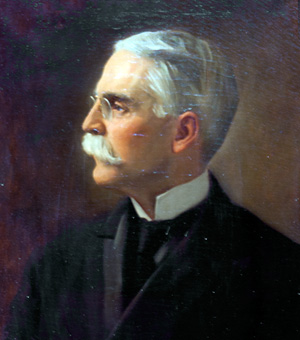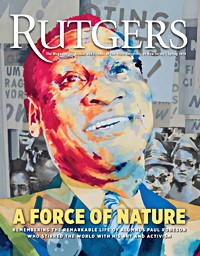Merrill Edward Gates
Rutgers President, 1882 to 1890

An academic disciplinarian who sought tighter control over student discipline, President Gates was a firm believer in liberal education. He opposed the expansion of the elective system, which was popularized at the time by President Charles Eliot at Harvard, and introduced in a modified form in Rutgers during the Campbell administration. He shook up the faculty and brought to Rutgers young academic scholars. He also made the first nonfaculty appointments in the college. Although generally unsuccessful with acquiring substantial private support, he did accept the unsolicited offer by Garret E. Winants of Jersey City to build the college’s first dormitory, which was completed in 1890. Gates was effective in securing increased state and federal aid. In 1887, under the provisions of the Hatch Act, the agricultural experiment station was established with an annual subsidy of $15,000. Rutgers also obtained additional federal funds for the Scientific School with the passage of the second Morrill Act of 1890. Relations with the State of New Jersey also moved forward. The state erected New Jersey Hall in 1889 on land conveyed to them by the college for the State Agricultural Experiment Station. The building was also used by the college for chemistry and biology instruction. In 1890 the State Scholarship Act was passed by the legislature, which provided one scholarship in each of the 60 assembly districts in New Jersey. Since the scholarships were to be used for the state agricultural college, the scientific students at Rutgers soon outnumbered those pursuing a classical curriculum.
Merrill Edward Gates was an academic disciplinarian who sought tighter control over student discipline and was a firm believer in liberal education.
In 1890 Merrill Gates resigned the presidency of Rutgers to become the president of Amherst College. In 1899 he left Amherst and was named chair of the U.S. Board of Indian Commissioners, and later named secretary of the board, serving from 1889 to 1912. He remained in Washington, D.C., presenting lectures and serving literary and philanthropic societies, and preaching in the Congregational Church. He died at his summer home in Bethlehem, New Hampshire, on August 11, 1922, at the age of 74.

